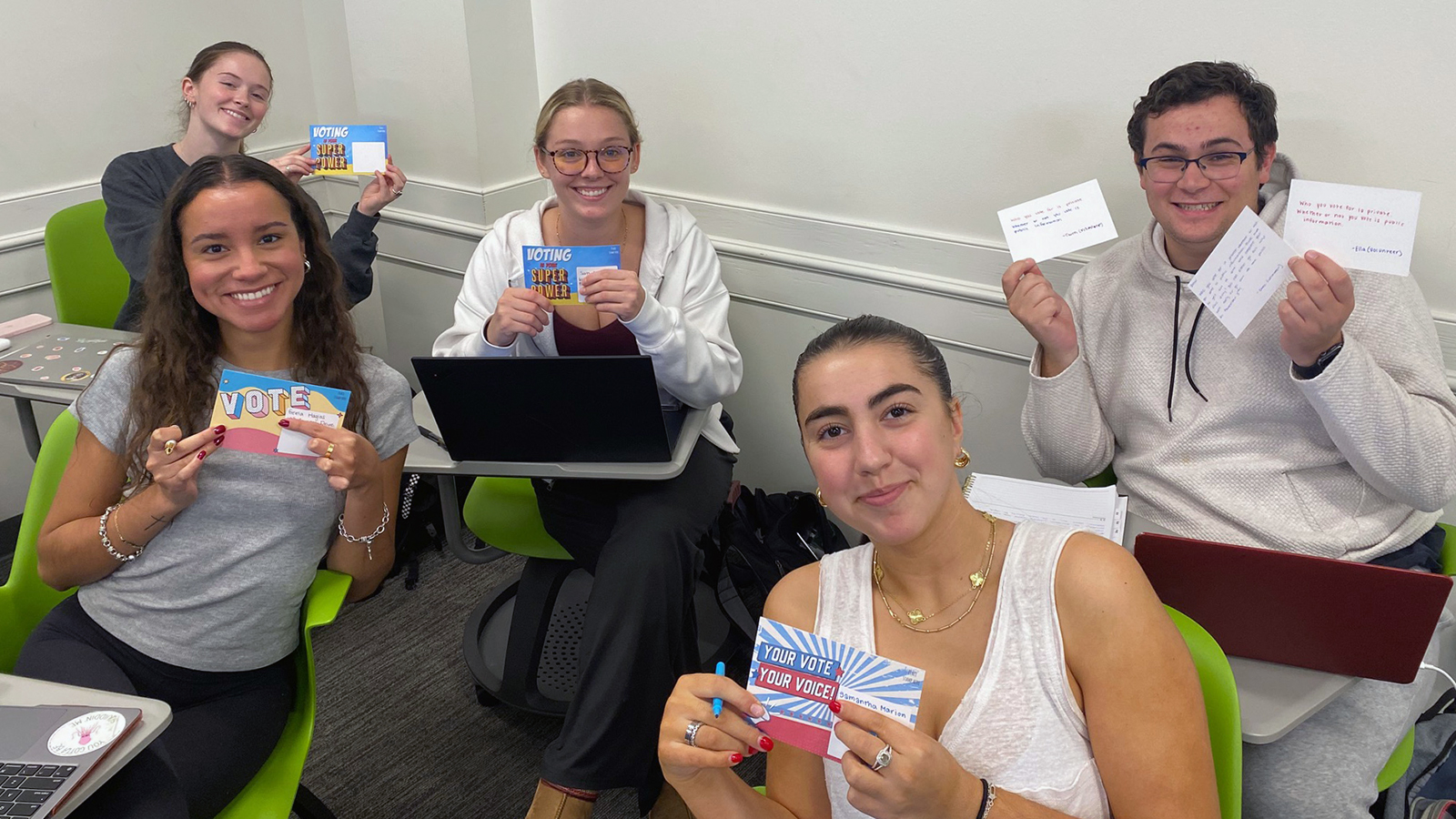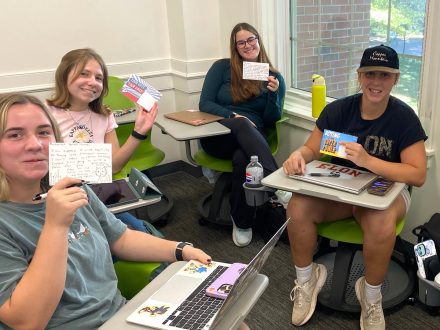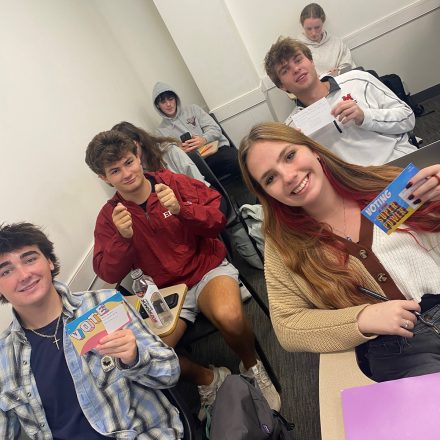In a creative approach to increase voter turnout, the professor of strategic communications tasked her students with crafting personalized messages for family and friends.

Students in Professor Julie Lellis’ Health Communications class got creative last week crafting personalized postcards as part of the “Get Out the Vote” initiative, writing messages to loved ones encouraging them to participate in the 2024 election.

As part of the interactive exercise, funded by the Center for the Advancement of Teaching and Learning (CATL), students crafted motivational notes on Oct. 22 for their postcard recipients, focusing on research-backed messaging techniques often used in “Get Out the Vote” campaigns. While most messages were non-partisan, some students chose to share why they were voting for a particular candidate or issue.
“We enjoyed doing this activity to reinforce the ‘health’ of our democracy,” Lellis said. “Our discussion in class that day centered on research methods used to understand human behavior around health decision-making.”
The activity not only brought students closer to the core themes of their coursework, but also gave them a chance to use these principles in a real-world context. According to Lellis, the students were enthusiastic about the assignment, which blended communication and persuasion theories with civic duty. Some students said they planned to follow up to see if their postcard recipients voted.
“Peers and loved ones are often good motivators,” Lellis said, adding that students tailored their messages based on their unique relationships with recipients. Some chose to be humorous, while others took a more serious tone. Lellis observed that many students, especially first-time voters, were passionate about voting and wanted to inspire similar enthusiasm in their friends and family.
Coral Clark ’25, a public health studies and strategic communications double major, found the exercise enlightening and personal.

“I enjoyed getting the chance to physically write a postcard and think critically about why I vote,” she said.
For her postcard, Clark chose her brother, a first-time voter and college student out of state. “I was able to tailor my message to him specifically since I know what motivates him,” she explained.
Clark added that she believes voting is essential for young people, as it allows them to express their perspectives in a democratic system that often overlooks younger demographics.
“Voting is an important part of the democratic process because it allows everyone to share their voice in a way that is heard,” Clark said. “Often, as teens or young adults, we are told that we don’t know everything yet or our voices aren’t as important as those with more experience. Voting is a way for our generation to have our voices both represented and respected.”
For public health studies major Cayce Becker ’27, the initiative served as a powerful reminder of the significance of voting in shaping collective progress. Becker’s postcard was addressed to her best friend, who recently requested her absentee ballot.
“Voting is a privilege that so many people across the world do not have and that many Americans had to fight for,” she said. “When we vote, we honor those who worked so hard to help America progress and to continue the progress they started. Our votes impact the entire country. It is important that we look at issues that may not directly impact us because they deeply affect those around us.”
Lellis continued the “Get Out the Vote” postcard exercise this week with her Communications in a Global Age class, connecting the activity to a unit on print media and its historical role in reaching voters. This simple yet impactful classroom project exemplifies how traditional media and personal communication can still effectively influence voter behavior in a digital age.
The Health Communications class is a required course for the School of Communications’ health communications minor, which launched in fall 2023. As part of the minor, students learn to become the much-needed bridge of understanding between medical professionals or scientists and the communities they serve.
The class is also an elective in the public health studies major, food studies minor, and the health and wellness coaching minor.


